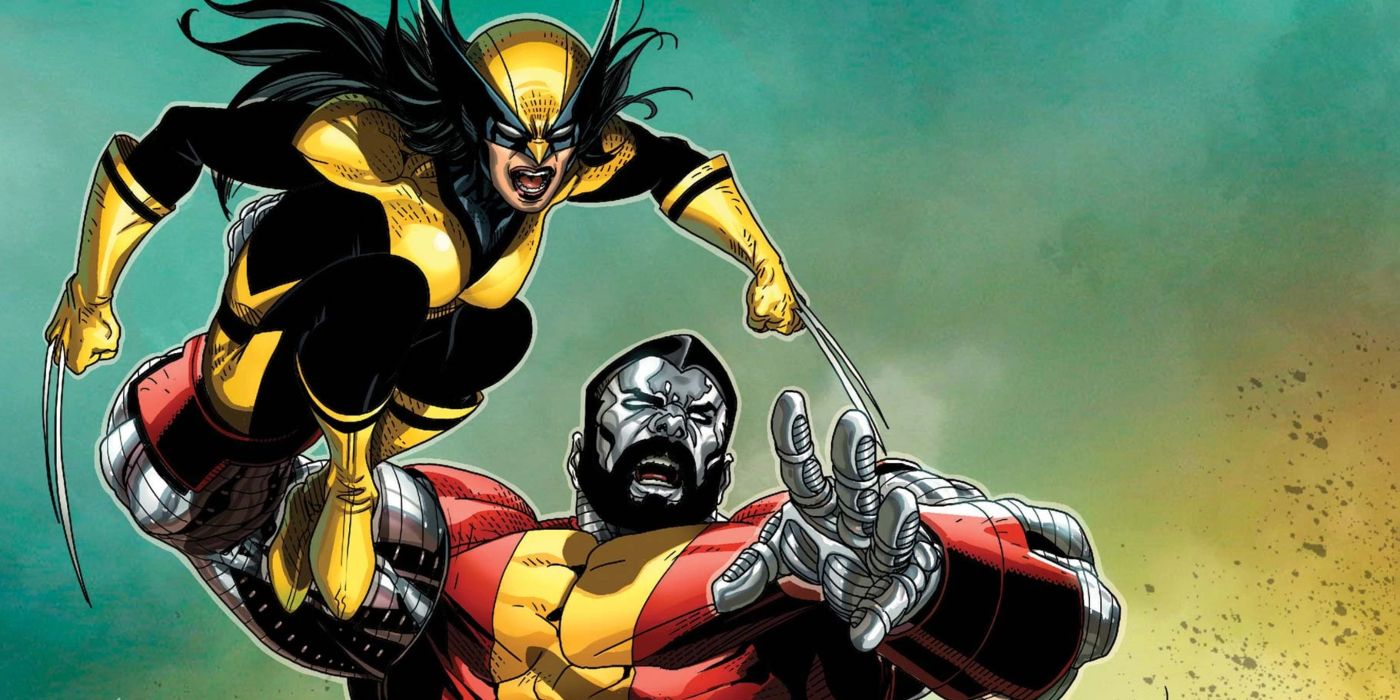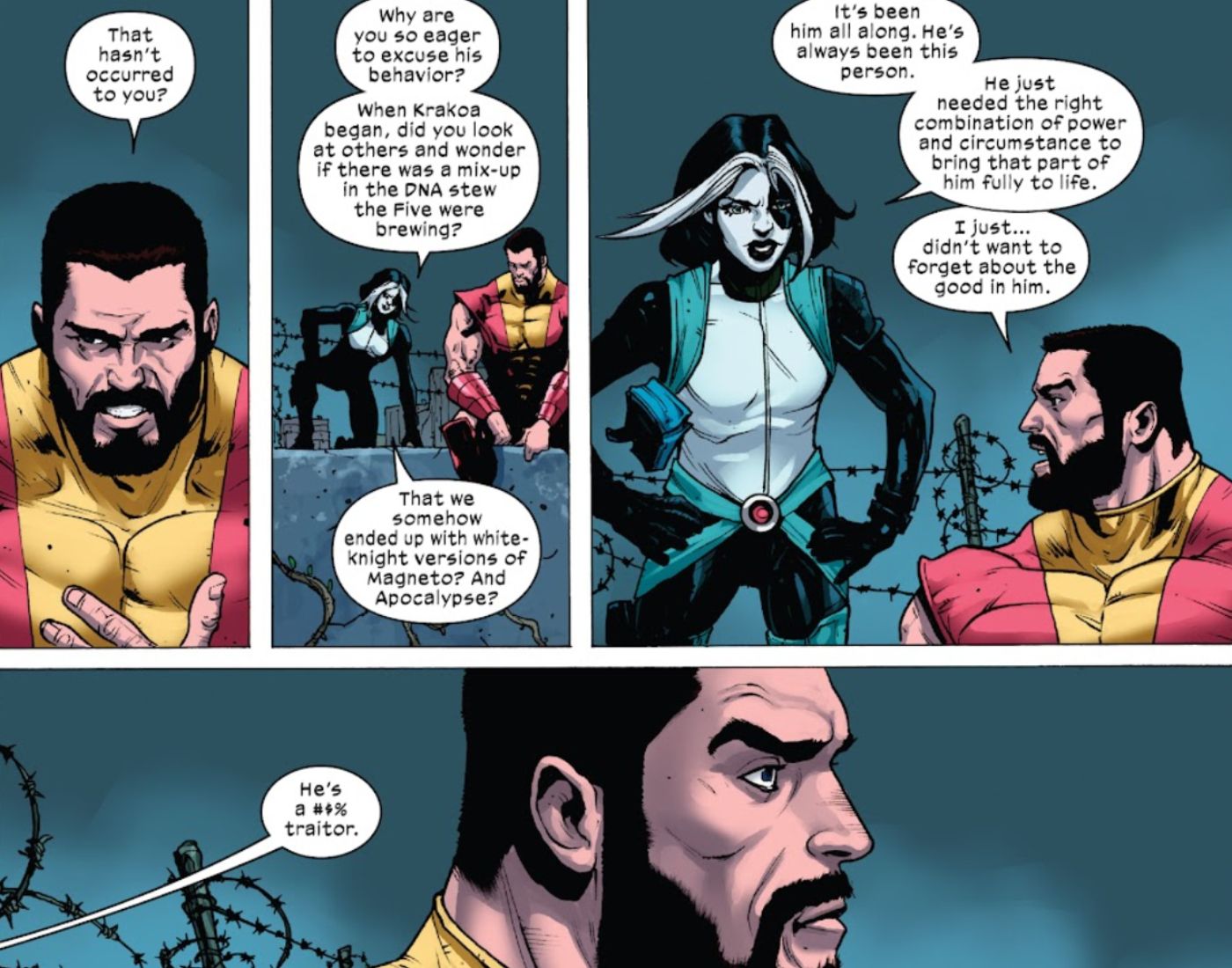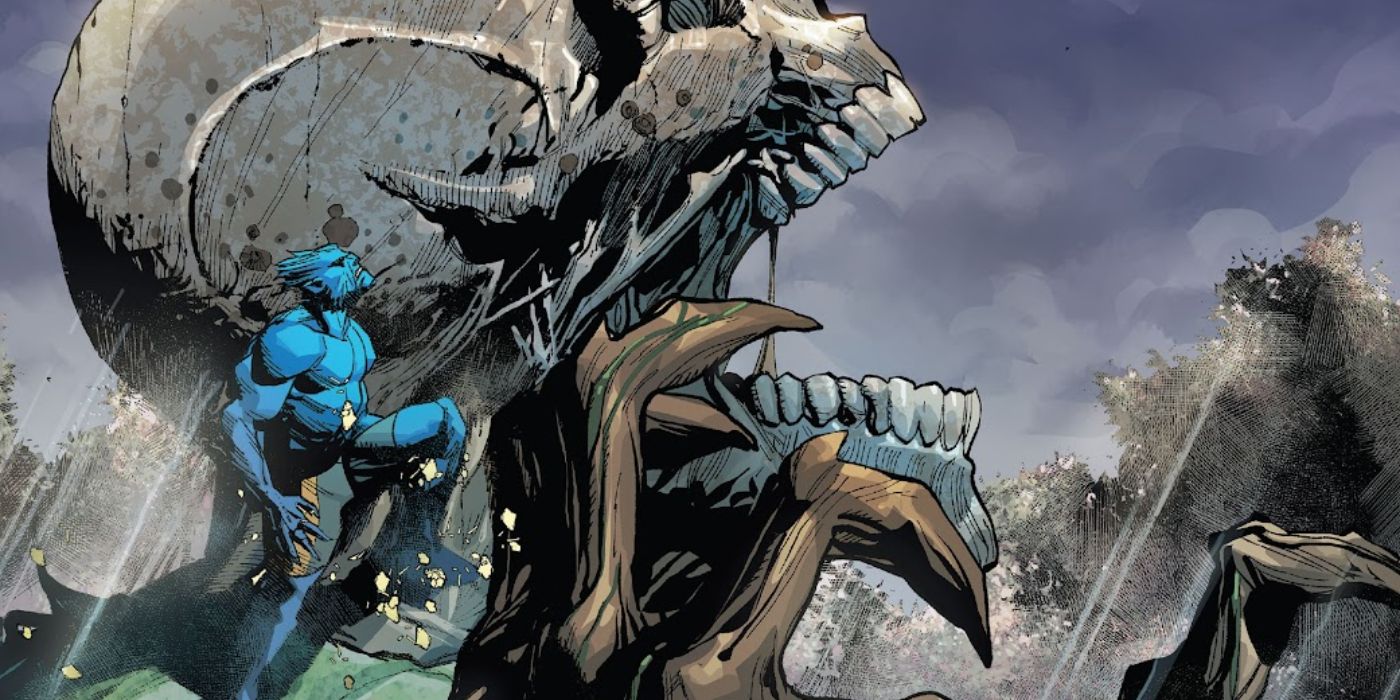The following contains spoilers for X-Force #41, now on sale from Marvel Comics
The modern X-Men period of stories has largely focused on the mutant nation of Krakoa and the group's attempts to help create a unified future for mutants. It's attracted plenty of enemies over the last few years, building to the challenges likely to explode during the events of the upcoming Fall of X.
But the mutant nation's greatest problems have largely stemmed from within their nation, and one of their numbers just nailed the problem on the head. Domino's conversation with Colossus in X-Force #41 (by Benjamin Percy, Paul Davidson, GURU-eFX, and VC's Joe Caramagna) highlights the ultimate tragedy of the Krakoa Era — that unchecked power and internal division has brought out the worst in many of them. These two elements have turned founding X-Men into monsters, opened up the nation to external threats, and effectively betrayed the utopian dream at the core of the Krakoa experiment.
Domino Breaks Down The X-Men's Ultimate Flaw
Amid the titular team's travels across space and time, X-Force #41 features a surprisingly quiet moment of reflection between former lovers Colossus and Domino. Their trip to the future has briefly freed Pitor from the control of the Chronicler, but it's unclear if he's been fully released enough that he can accurately explain how he's become an unwilling agent of his brother Mikhail's anti-Krakoa goals. Instead, they discuss Colossus' continuing belief that there is some good in Beast — and reveal his quiet but desperate hope that a flawed resurrection or subterfuge by Dark Beast is behind Hank McCoy's dark descent into villainy.
But Domino has little patience for their former ally and instead argues he always had the potential to be like this. All it took was the right mix of circumstance and opportunity to make the hero into a monster. She ends the conversation with a blunt condemnation of the "traitor," leaving Colossus quietly shaken — at least until they have to jump back into Quentin Quire's time-hopping adventure. But Domino's blunt assessment of the mutants' failing — and what it means beyond condemning Beast for the damage his actions have brought to the world — speaks to one of the great tragedies of the entire Krakoa Era for the X-Men: how the idyllic dream of a perfect mutant nation was doomed from the start, and not specifically because of external hatred but internal division.
The X-Men Are Their Own Worst Enemy
While many dangers to Krakoa have come from external forces like the hordes of Amenth or the machinations of Orchis, there's been just as much chaos internally. The dream of a mutant nation was strong enough to unite warring factions of mutants, but their own personal goals and viewpoints — steadily proving incompatible with each other, despite the power they've been able to achieve together — have burned down various hopes for progress. Xavier and Magneto's clashes with Moira MacTaggert during House of X saw them ignore some mutants in their dream for total resurrection. This led to Inferno, which played on the general mistrust and secretive nature of the Krakoa Era, to disastrous results. Abigail Brands' actions in X-Men Red destabilized the mutants' potential in the cosmic corner of the Marvel Universe.
The X-Men have been given world-changing potential, but only a handful like Forge want to use it to make the entire world a better place. In other cases, it's led heroes like Cyclops and Iceman to argue for the genocide of the Brood or turn a blind eye to the crimes of their fellow mutants. Even the external threats have played on the division; in Immortal X-Men, Colossus' big move against the Quiet Council was to play on the tensions of the group, not break them apart physically. Sins of Sinister highlighted how easy it would be for Krakoa, as a whole, to turn off their moralities and conquer the entire universe, speaking to the nation's true villainous potential. Colossus poses a genuine danger as a spy, but it's notable that his most damaging act may be simply exposing the X-Men's discovery of the Sins of Sinister timeline, playing on genuine questions of accountability in the Krakoa Era that even heroes like Storm and Kate Pryde were willing to let lie.
Mutants turning on each other and leaving themselves vulnerable to external attacks has always been an undercurrent of the franchise. But it's become the team's principal flaw in the Krakoa Era, where their dream of a true mutant future might have been dashed by their own failures. Given all the power and potential in the world, they chose dark pragmatism instead of sticking to their noble intentions. They've turned on each other instead of working together, allowing in-fighting and suspicion to distract from genuine dangers. Either through unwarranted ambition or external manipulation, the mutants just keep turning on each other and have always been the doom awaiting their utopian dream.



